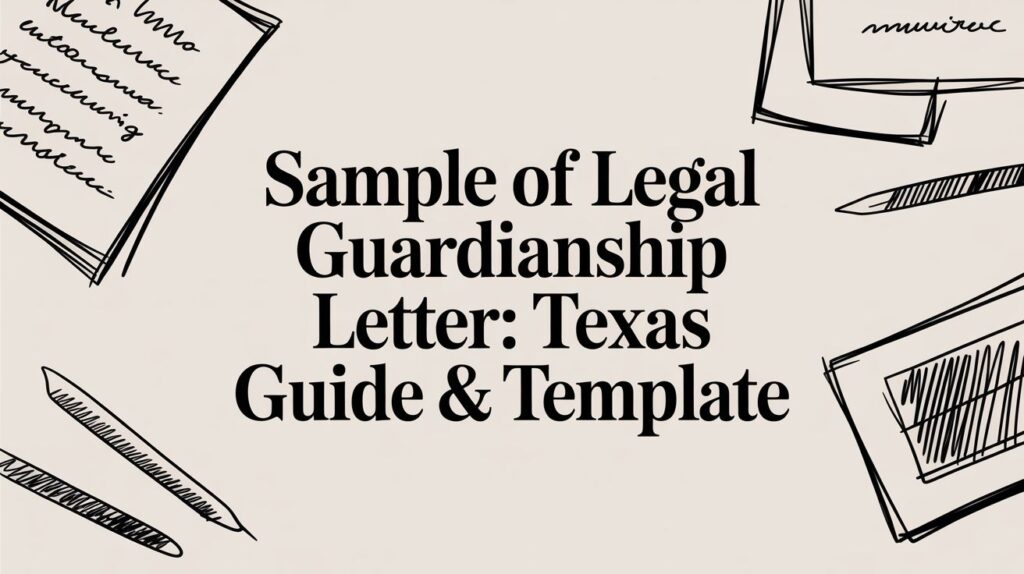Understanding Legal Guardianship Letters
A legal guardianship letter is a crucial document that outlines a person's preferences for who should care for their children in the event that they are unable to do so. This letter serves as a guiding instrument for the courts and family members, ensuring that the wishes of the parent or guardian are respected and followed.
In Texas, the legal guardianship letter can be pivotal during custody disputes or when unforeseen circumstances arise. It is important to include specific details such as the names of potential guardians, their relationship to the child, and any relevant considerations regarding the child's upbringing, education, and health care preferences.
Key Components of a Legal Guardianship Letter
When drafting a legal guardianship letter, several key components must be included to ensure its effectiveness and legal standing. These components typically encompass the identification of the child, the proposed guardian's information, and a clear statement of the wishes of the parent or legal guardian.
Additionally, it is advisable to include any specific instructions or conditions that the parent wishes to impose on the guardianship. For instance, parents may want to specify educational preferences, religious upbringing, or any other critical factors that would influence the child's welfare under the proposed guardian's care.
How to Write a Legal Guardianship Letter
Writing a legal guardianship letter involves a thoughtful approach to ensure that all necessary information is clearly articulated. Start by addressing the letter formally, followed by a statement of intent that outlines the purpose of the document. It is essential to be as specific as possible to avoid any ambiguity.
Once the intent is established, provide detailed information about the proposed guardian, including their relationship to the child and why they are a suitable choice. Finally, ensure that the letter is signed and dated, and consider having it notarized to enhance its legal validity.
Legal Considerations for Guardianship Letters in Texas
In Texas, legal guardianship letters must comply with specific state laws to be deemed valid. It is crucial to understand that while a guardianship letter expresses a parent's wishes, it does not automatically confer legal guardianship. A court must ultimately approve the guardian, and the letter can serve as supportive evidence during this process.
Parents should also be aware of the necessity of updating the letter as circumstances change, such as the relocation of the proposed guardian or changes in the parent’s situation. Regular reviews of the document can help ensure that it remains relevant and legally sound.

